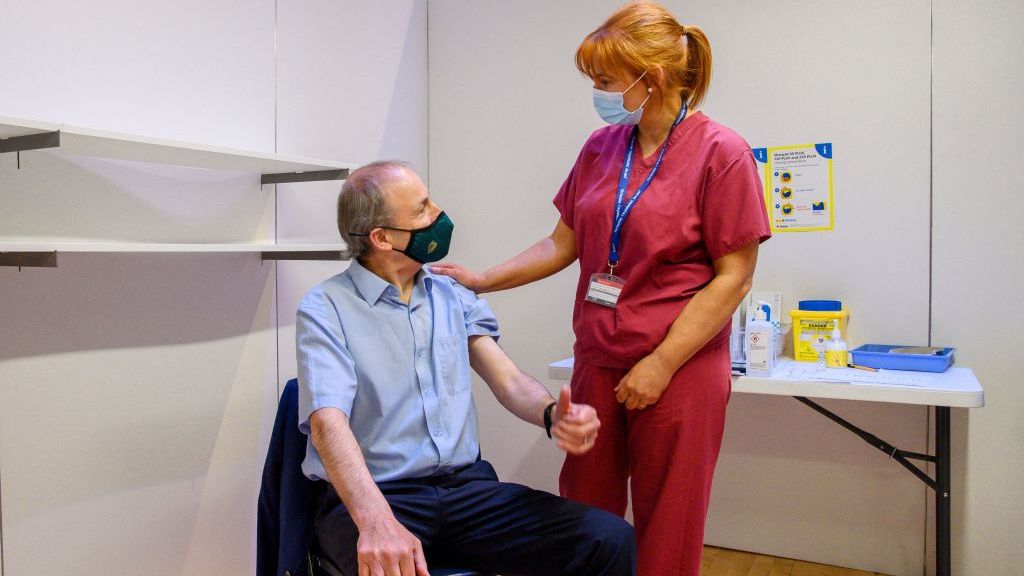IRELAND has one of the lowest Covid-19 vaccine hesitancy rates among European Union nations, a new survey has shown.
According to research conducted by Eurofound, just 10% of Irish adults said they were either 'very unlikely' or 'rather unlikely' to accept the vaccine.
By contrast, the European Union average is 27%.
Meanwhile, 86.5% of those surveyed in Ireland said they were 'very likely' or 'rather likely' to take the vaccine.
Eurofound surveyed 138,629 people across the EU between February and March,
Vaccine hesitancy in Ireland is the third lowest among EU member states, with the lowest rates in Denmark (7.6%) and Malta (8.6%).
Vaccine hesitancy was highest in Bulgaria, where 61% of those surveyed said they were 'very unlikely' or 'rather unlikely' to take the vaccine, followed by Latvia, Croatia and France.
Across the EU, vaccine hesitancy appears to be slightly more common in men (29%) than in women (25%).
 Taoiseach Michael Martin receives his Covid-19 vaccine (Getty)
Taoiseach Michael Martin receives his Covid-19 vaccine (Getty)The study also found a strong association between vaccine hesitancy and social media use, particularly when social media was the person's main source of information.
40% of people who use social media as their primary source of information were found to be vaccine hesitant, but that figure falls to just 18% for people who use newspapers, television and radio as their information sources.
People aged between 35 and 49 were found to be more sceptical about vaccines (29%) compared with younger and older age groups (26% and 27% respectively).
It also found that unemployed people, along with those with long-term illness or disability were most likely to be sceptical, with 39% of both groups indicating hesitancy. The least hesitant group were students, with just 13% of them indicating scepticism.
Daphne Ahrendt, Eurofound Senior Research Manager said while vaccines play a crucial role in overcoming the Covid-19 pandemic, unfortunately the findings reflect "a failure to deliver persuasive and clear communication regarding the efficacy and safety of vaccines".
"Trust in vaccines is related to trust in institutions, and this is an issue primarily for policymakers, but we also all have a collective responsibility, across society, to ensure that we communicate and publish accurate and sound information on the safety and importance of vaccines," she said.

